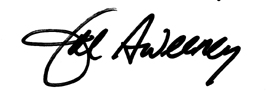
The question was raised during the Industry Outlook session featured in this issue of why it is, that of all the professions, people only tell jokes about lawyers. When, for instance, was the last time you heard an accountant joke?
The attorneys we assembled for the session are among Kansas City’s best citizens. Like most of their peers, they provide expert skill and good value to clients, whose trust they have earned through the consistency of their performance and the constancy of their character. The fact is, American business could not begin to function without their assistance. More often than not, they curb the wayward impulses of their clients and urge them to honor the law.
Despite their relentless work schedules, this class of attorney does more than its share of civic and charitable work. Historically, these attorneys have also gravitated towards public service and political office. Ilus Davis was an attorney. So are Kit Bond and John Ashcroft.
But then again, so were Richard Nixon and Bill Clinton. And there’s the rub. If there were only the one class of attorneys, there would be no jokes. But, alas, there is another class. These attorneys may be resourceful enough to handle certain issues, but are too opportunistic to maintain the standards that their peers do. It would be generally safe to say that it is in this category that one finds those who are the most exploitative of clients and infuriating to the client’s opposition.
When an attorney does not advise a client of his or her lack of experience in an area, it’s likely the clients will pay dearly to learn this on their own. When an attorney enrages the client’s adversaries, it’s likely the client will pay again in terms of estranged relations and loss of reputation. The lowest level of lawyership and the least necessary to our society is the predator—the attorney that exists to exploit, waste and discourage. But in truth, this predatory attorney is not solely to blame. They feed on human nature because human nature is inherently weak and corrupt.
A related problem is the dramatic expansion of government and consequently “law.” The law schools now pump out students to meet the demand. If graduating students in the top quartile are the ones sought out by the top law firms, and if students in the middle half generally find some honorable calling, the ones in the bottom quartile are left to fend for themselves.
These are people who would not have been attorneys a generation ago, but who, through the expansion of the law, and the expansion of marketing opportunities within it, will somehow find themselves a niche. And if that niche is launching a lawsuit, say, against Milli Vanilli for lip-synching its records (there were more than 40 such suits), that niche might just make for a career or at least a payback of the law school tuition bills. To be sure, there are highly honorable attorneys from the bottom quartile, and dishonorable ones from the top—Clinton and Nixon come to mind. It’s just that the temptations are greater when one’s own survival is at stake.
If a JD is among the higher-respected degrees in education, then is it perhaps the responsibility of the law schools and their deans to elevate their standards and to demand a higher level of professionalism in this otherwise professional service industry? What we need are attorneys who are not like us, but who are better than we are. We tell lawyer jokes because we don’t want to tell jokes about ourselves.
